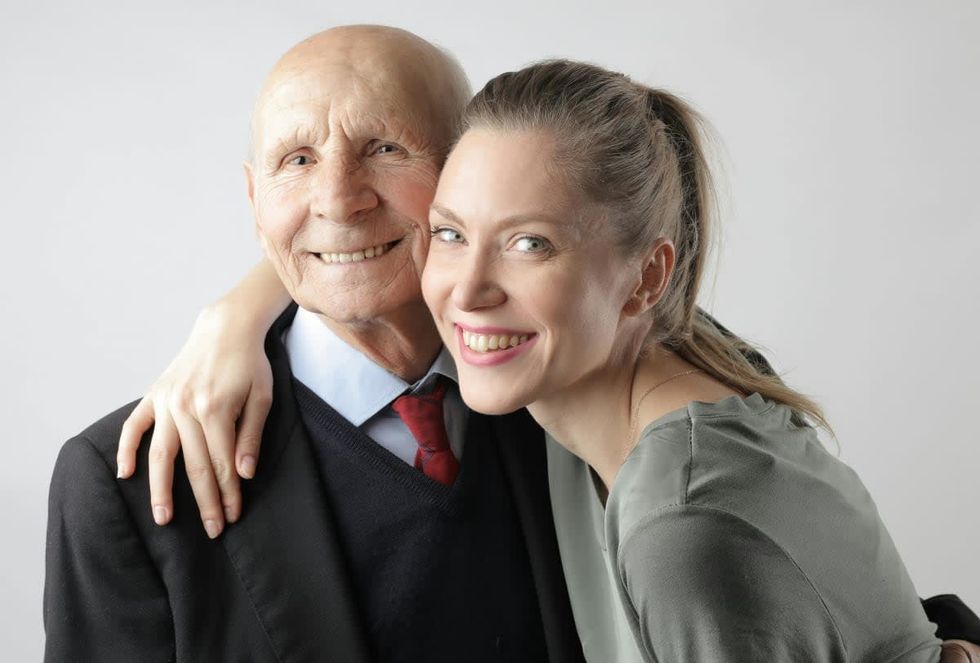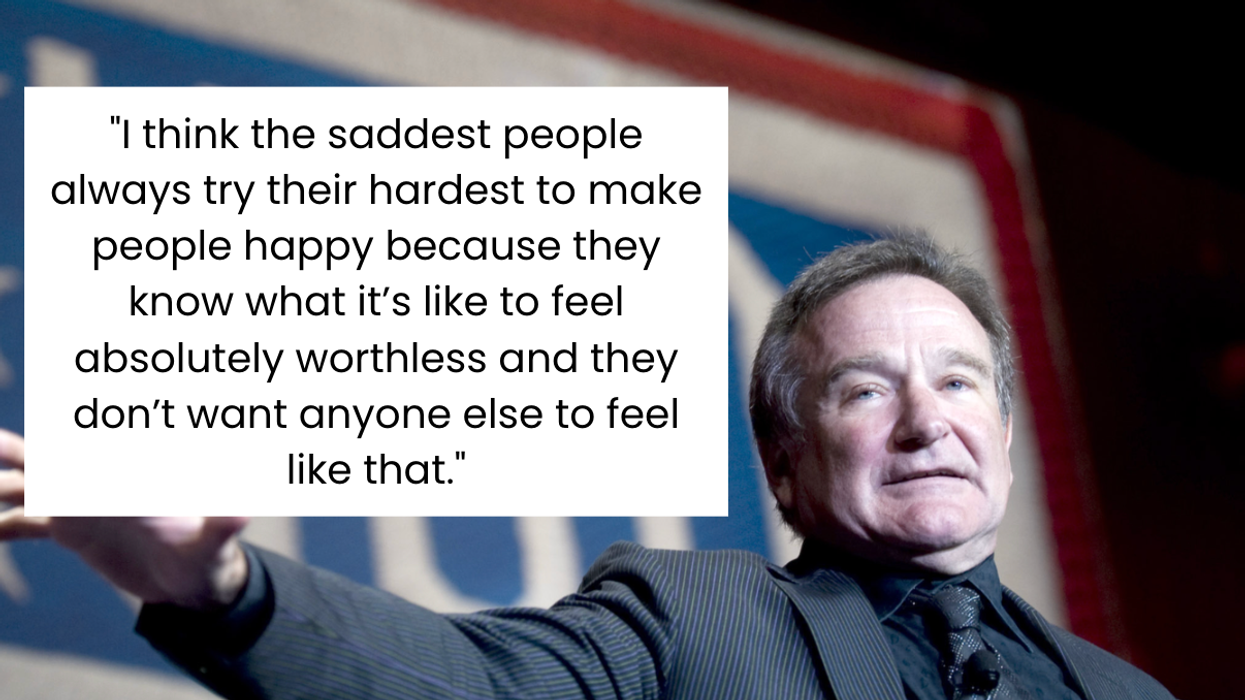Lindsey Moore was only 7 or 8 years old when she watched her father, Ted Lawver, walk into a comic book store to sell his cherished Dan Marino NFL rookie card. It may have been just another card to some, but for Ted, it was a sacrifice to pay bills, and Lindsey was determined to get it back for him one day. That day finally came three decades later, on Christmas Eve. In November 2023, Lindsey shared a video on TikTok (@lindseyswagmom) capturing the heartwarming moment she surprised her dad with a Marino rookie card as a Secret Santa gift, according to PEOPLE.

The heartwarming video shows Lindsey’s dad holding a Christmas greeting card she had gotten for him. Another family member takes the card and begins reading it aloud. “This was one of my most vivid childhood memories how I remember it,” the message on the card’s inner flap reads, “Money was tight, so you were selling your most prized possession. In the moment, I felt your sacrifice and it taught me that I would do whatever was necessary to ensure my future family ever needed anything. It was a lesson that stuck with me since that moment,” Moore's message continues. “It taught me the value of the greater good.”

"I knew I would work hard to repay you. I will never be able to fully repay that debt. Seven-year-old me would be so elated to see that I finally fulfilled that promise I made to myself. Thank you for everything. I love you.” The card was signed as "Linny," which is Moore's childhood nickname, according to PEOPLE.
Smiling, Ted removes his glasses and picks up a brown paper bag from the floor. The small bag features a Christmas tree stamped onto it in green foil. He pulls out a package wrapped in red ruffled paper from the bag. From inside the paper, he reveals a yellow envelope. He flips the envelope’s cap and takes out a plastic packet containing the rookie card featuring the NFL star. Touched, he walks to his daughter and gives her a warm embrace. They both appear teary-eyed with joy, and the video concludes with this beautiful moment.
For context, a 1984 Topps Dan Marino rookie in mint condition is currently fetching as much as $30,000 on eBay, according to PEOPLE. Whereas, at that time, Ted sold the card for $50, per NBC News.
The video has more than 11 million views and thousands of comments. Some people praised Ted’s parenting, others felt happy seeing how Lindsey fulfilled her childhood promise. @ugh.idunno commented, “The baseball card wasn’t the real gift to him. It was hearing his impact on you. Priceless!” @caityfaye said, “Beautiful moment and reminder to all parents we are teaching our kids lessons even when we don’t realize it.” @borkgoesshiba reflected, “His good parenting coming back to reward him.”

In a follow-up video, the mom of three shared a slideshow that contained pictures of the rookie card and screengrabs of the inner flap of the greeting card with her handwritten message scrawled on it. In the comment section, people tagged Miami Dolphins to get this card autographed by the former quarterback Marino. But whether or not it receives the star’s autograph, for Ted, it will always be priceless.
@lindseyswagmom Im not crying, you’re crying
You can follow Lindsey on TikTok (@lindseyswagmom) for more wholesome videos on her lifestyle.























 Robin Williams performs for military men and women as part of a United Service Organization (USO) show on board Camp Phoenix in December 2007
Robin Williams performs for military men and women as part of a United Service Organization (USO) show on board Camp Phoenix in December 2007 Gif of Robin Williams via
Gif of Robin Williams via 
 A woman conducts a online color testCanva
A woman conducts a online color testCanva A selection of color swatchesCanva
A selection of color swatchesCanva A young boy takes a color examCanva
A young boy takes a color examCanva
Will your current friends still be with you after seven years?
Professor shares how many years a friendship must last before it'll become lifelong
Think of your best friend. How long have you known them? Growing up, children make friends and say they’ll be best friends forever. That’s where “BFF” came from, for crying out loud. But is the concept of the lifelong friend real? If so, how many years of friendship will have to bloom before a friendship goes the distance? Well, a Dutch study may have the answer to that last question.
Sociologist Gerald Mollenhorst and his team in the Netherlands did extensive research on friendships and made some interesting findings in his surveys and studies. Mollenhorst found that over half of your friendships will “shed” within seven years. However, the relationships that go past the seven-year mark tend to last. This led to the prevailing theory that most friendships lasting more than seven years would endure throughout a person’s lifetime.
In Mollenhorst’s findings, lifelong friendships seem to come down to one thing: reciprocal effort. The primary reason so many friendships form and fade within seven-year cycles has much to do with a person’s ages and life stages. A lot of people lose touch with elementary and high school friends because so many leave home to attend college. Work friends change when someone gets promoted or finds a better job in a different state. Some friends get married and have children, reducing one-on-one time together, and thus a friendship fades. It’s easy to lose friends, but naturally harder to keep them when you’re no longer in proximity.
Some people on Reddit even wonder if lifelong friendships are actually real or just a romanticized thought nowadays. However, older commenters showed that lifelong friendship is still possible:
“I met my friend on the first day of kindergarten. Maybe not the very first day, but within the first week. We were texting each other stupid memes just yesterday. This year we’ll both celebrate our 58th birthdays.”
“My oldest friend and I met when she was just 5 and I was 9. Next-door neighbors. We're now both over 60 and still talk weekly and visit at least twice a year.”
“I’m 55. I’ve just spent a weekend with friends I met 24 and 32 years ago respectively. I’m also still in touch with my penpal in the States. I was 15 when we started writing to each other.”
“My friends (3 of them) go back to my college days in my 20’s that I still talk to a minimum of once a week. I'm in my early 60s now.”
“We ebb and flow. Sometimes many years will pass as we go through different things and phases. Nobody gets buttsore if we aren’t in touch all the time. In our 50s we don’t try and argue or be petty like we did before. But I love them. I don’t need a weekly lunch to know that. I could make a call right now if I needed something. Same with them.”
Maintaining a friendship for life is never guaranteed, but there are ways, psychotherapists say, that can make a friendship last. It’s not easy, but for a friendship to last, both participants need to make room for patience and place greater weight on their similarities than on the differences that may develop over time. Along with that, it’s helpful to be tolerant of large distances and gaps of time between visits, too. It’s not easy, and it requires both people involved to be equally invested to keep the friendship alive and from becoming stagnant.
As tough as it sounds, it is still possible. You may be a fortunate person who can name several friends you’ve kept for over seven years or over seventy years. But if you’re not, every new friendship you make has the same chance and potential of being lifelong.